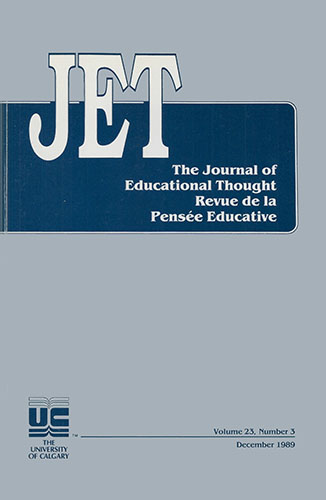Public School Policy and Minority Students
DOI:
https://doi.org/10.55016/ojs/jet.v23i3.44268Abstract
American school policy toward adolescents has traditionally operated through sanctions, tracking and leveling, economics, power, sorting and se lection, and dependency. Policies related to these areas are applied to all students; however, they have a negative impact on minority students. Evidence suggests that these policies primarily meet organizational needs and those of advantaged students. Since the minority student population is largely composed of disadvantaged students, there is the constant opportunity for conflict with the organization's value structure. Minority students who choose to rebel receive sanctions; they are required to conform or to drop out of school. Those who conform are given rewards distinctly different from their advantaged peers. These rewards encourage a sense of maintained dependency. School organizations that attempt to alter traditional policies are frequently met with resistance by administrators and faculty members who work to ensure the perpetuation of the school's ethos. School policy needs to be driven by a philosophy of equality that protects all students from academic, cultural, economic, and financial exploitation. Failure on the part of school organizations to provide such safeguards should result in the use of receivership as a sanction for continued discrimination against minority students.
Downloads
Published
Issue
Section
License
The Journal of Educational Thought retains first publication rights for all articles. The Journal grants reproduction rights for noncommercial educational purposes with the provision that full acknowledgement of the work’s source be noted on each copy. The Journal will redirect to the appropriate authors any inquiries for further commercial publication of individual articles. All authors wishing to publish in JET will be asked to fill in and sign a Consent to Publish and Transfer of Copyright agreement.
Authors must affirm that any submission to JET has not been and will not be published or submitted elsewhere while under considration by JET.

